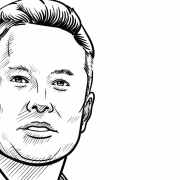C. R. Hallpike is a respected anthropologist who once wrote a review of a young author’s recent book on the history of humans. It states:
It would be fair to say that whenever his facts are broadly correct they are not new, and whenever he tries to strike out on his own he often gets things wrong, sometimes seriously … [It is not] a contribution to knowledge.
Two things are notable here.
One is that the book’s author doesn’t seem to disagree with the assessment.
Another is that the author, Yuval Noah Harari, has sold over 27 million books, making him one of the bestselling contemporary authors in any field, and his book Sapiens – which Hallpike was reviewing – the most successful anthropology book of all time.
Harari recently said about writing Sapiens:
I thought, ‘This is so banal!’ … There is absolutely nothing there that is new. I’m not an archeologist. I’m not a primatologist. I mean, I did zero new research. . . . It was really reading the kind of common knowledge and just presenting it in a new way.
What Sapiens does have is excellent writing. Beautiful writing. The stories are captivating, the flow is effortless. Harari took what was already known and wrote it better than anyone had done before. The result was fame greater than anyone before him could imagine. Best story wins.
It’s nothing to be ashamed of, because so many successes work this way.
The Civil War is probably the most well-documented period in American history. There are thousands of books analyzing every conceivable angle, chronicling every possible detail. But in 1990 Ken Burns’ Civil War documentary became an instant phenomenon, with 39 million viewers and winning 40 major film awards. As many Americans watched Ken Burns’ Civil War in 1990 as watched the Super Bowl that year. And all he did – not to minimize it, because it’s such a feat – is take 130-year-old existing information and wove it into a (very) good story.
Bill Bryson is the same. His books fly off the shelves, which I understand drives the little-known academics who uncovered the things he writes about crazy. His latest work is basically an anatomy textbook. It has no new information, no discoveries. But it’s so well written – he tells such a good story – that it became an instant New York Times bestseller and the Washington Post’s Book of the Year.
Charles Darwin didn’t discover evolution, he just wrote the first and most compelling book about it.
John Burr Williams had more profound insight on the topic of valuing companies than Benjamin Graham. But Graham knew how to write a good paragraph, so he became the legend.
Same with Tesla, isn’t it? The company is worth seven times more than GM and Ford combined, not because it built a good business but because Elon Musk is good at getting people’s attention. Customers. Investors. Twitter followers – he’s told them all a good story, and the best story wins.
This drives you crazy if you assume the world is swayed by facts and objectivity – if you assume best idea wins. There’s a devoted group of Harari critics obsessed with showing how unoriginal his work is; Musk is viewed with the same mix of confusion and contempt.
In a perfect world the importance of information wouldn’t rely on its author’s eloquence. But we live in a world where people are bored, impatient, emotional, and need complicated things distilled into easy-to-grasp scenes.
If you look, I think you’ll find that wherever information is exchanged – wherever there are products, companies, careers, politics, knowledge, education, and culture – you will find that the best story wins. Great ideas explained poorly can go nowhere while old or wrong ideas told compellingly can ignite a revolution. Morgan Freeman can narrate a grocery list and bring people to tears, while an inarticulate scientist might cure disease and go unnoticed.
Novelist Richard Powers put it this way: “The best arguments in the world won’t change a single person’s mind. The only thing that can do that is a good story.”
A few things about good stories worth remembering:
When a topic is complex, stories are like leverage.
Leverage is just something that squeezes the full potential out of something with less effort. Stories can leverage ideas in the same way debt can leverage assets.
Trying to explain something like physics is so hard if you’re just deadlifting facts and formulas. But if you can explain things like how fire works with a story about balls rolling down hills and running into each other – watch Richard Feynman, an astounding storyteller, do that here – you can explain something complex in seconds, without much effort.
This is more than just persuading others. Stories help you just as much. Part of what made Albert Einstein so talented was his imagination and ability to distill complexity into a simple scene in his head. When he was 16 he started imagining what it would be like to ride on a beam of light, holding onto the sides like a flying carpet and thinking through how it would travel and bend. Soon after he began imagining what your body would feel like if you were in an enclosed elevator riding through space. He contemplated gravity by imagining bowling balls and billiard balls competing for space on a trampoline surface. He could process a textbook of information with the effort of a daydream.
Ken Burns once said: “The common stories are 1+1=2. We get it, they make sense. But the good stories are about 1+1=3.” That’s leverage.
Stories get diverse people to focus attention on a single point.
Steven Spielberg pointed this out:
The most amazing thing for me is that every single person who sees a movie brings a whole set of unique experiences. But through careful manipulation and good storytelling, you can get everybody to clap at the same time, to laugh at the same time, and to be afraid at the same time.
The key thing is that stories capture and direct attention, which is so important in a world where people are bored and impatient.
Good stories create so much hidden opportunity among things you assume can’t be improved.
Rory Sutherland writes in his book Alchemy about the idea of psychological moonshots:
Making a train journey 20 per cent faster might cost hundreds of millions, but making it 20 per cent more enjoyable may cost almost nothing.
The Uber map is a psychological moonshot because it does not reduce the waiting time for a taxi but simply makes waiting 90 per cent less frustrating.
It seems likely that the biggest progress in the next 50 years may come not from improvements in technology but in psychology and design thinking. Put simply, it’s easy to achieve massive improvements in perception at a fraction of the cost of equivalent improvements in reality.
This applies to so many things.
How many great ideas have already been discovered but could grow 100x or more if someone just explained them better?
How many products have only found a fraction of their potential market because the company is so bad at describing them to customers?
So, so many.
You’ll get discouraged if you think every new book has to be about an original idea, or that every new company has to sell a brand new invention. There is so much more opportunity if you see the world like Yuval Noah Harari – best story wins.









